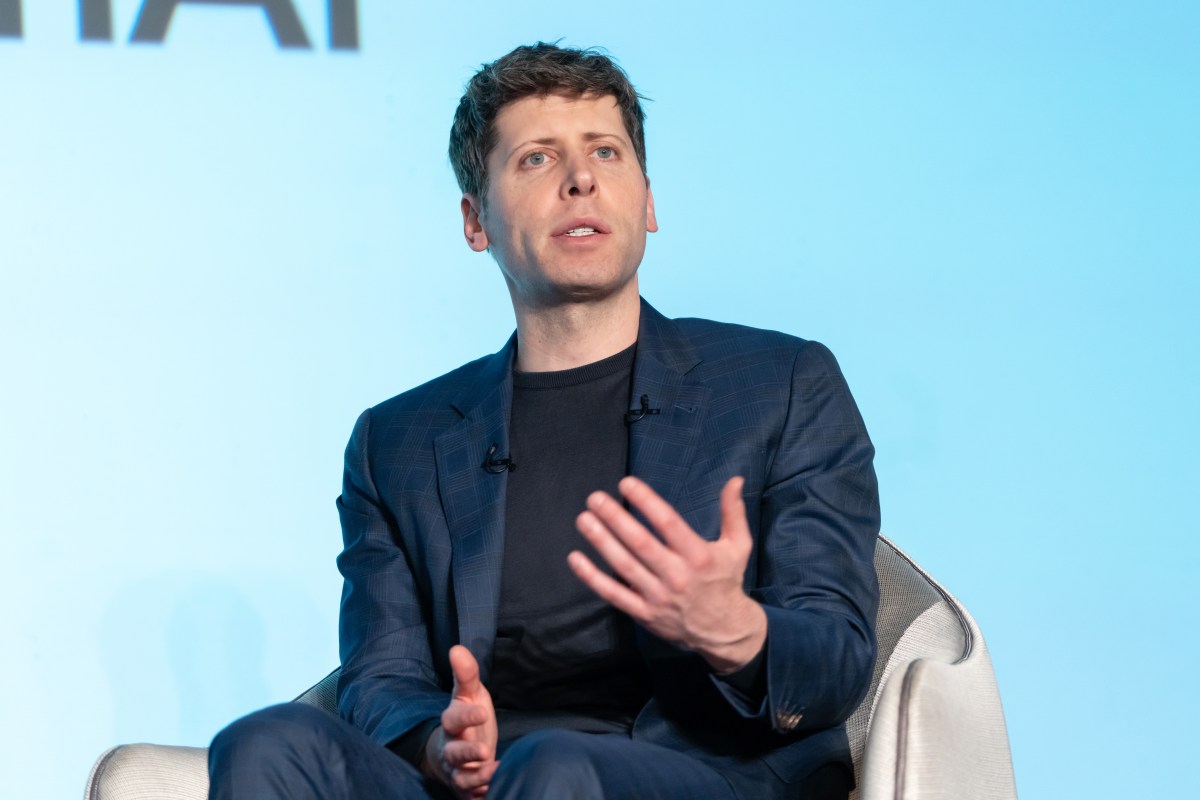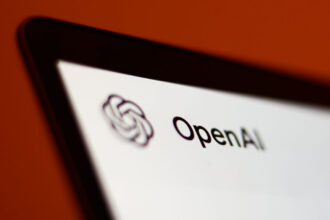Across hundreds of thousands of years of human existence, an impossible question has befuddled our species: Why is the baby crying?!
Sam Altman, who is both the father of a 3-month-old and CEO of OpenAI, hopped on OpenAI’s new podcast today to talk about how his company is impacting his experience with fatherhood. Altman, who describes himself as “extremely kid-pilled,” said he was “constantly” using ChatGPT to ask questions about the behavior of babies during the first few weeks of his son’s life — now that he’s a bit more settled, he’s using ChatGPT to ask more general questions about children’s developmental stages.
“I mean, clearly, people have been able to take care of babies without ChatGPT for a long time,” Altman said. “I don’t know how I would’ve done that.”
This, obviously, isn’t fundamentally different from frantically Googling questions about babies, something that even the most well-prepared parents have been doing for decades. But, given who Altman is, his choice of internet tool to use is no surprise.
Still, when hallucination remains a challenge for AI products, it may be concerning to imagine relying so heavily on a chat AI for baby-care answers.
But parents have been known to turn to many a questionable source for information in the middle of the night. My colleagues with children describe the “bottomless pit” of Google, and the minefield of parenting Facebook groups. Is ChatGPT really much different than taking the advice of someone online who’s insisting that you are a neglectful caretaker if you aren’t basing your baby’s bed time on the current phase of the moon?
Perhaps the idea of parents using AI in search for child-raising answers is less of a “primal alarm bell” than the idea of very young children using it, which Altman also discussed.
“There’s this video that always has stuck with me of a baby, or a little toddler, with one of those old glossy magazines [tapping] the [cover],” Altman said. The child thought that the magazine was an iPad. “Kids born now will just think that the world always had extremely smart AI.”
Former OpenAI science communicator Andrew Mayne, who was interviewing Altman, recalled seeing a social media post from a parent who used the voice mode of ChatGPT to talk to his child about his obsessions.
“He got tired of talking to his kid about Thomas the Tank Engine, so he put ChatGPT into voice mode… An hour later, the kid’s still talking about Thomas the train,” Mayne said gleefully.
“Kids love voice mode,” Altman interjected.
As today’s parents turn to ChatGPT for all sorts of similar uses, this will likely end up reflecting the same repetitive discourse around the “iPad kid” generation (yes, it’s probably bad to let your kid watch hours and hours of “Cocomelon”; no, it’s not fair to expect parents to occupy their kids’ time 24/7).
But existing children’s media is at least, for now, created by a team of humans, while ChatGPT’s own policies recommend it not be used by children under age 13. It does not have a vetted parental controls mode. Even Altman is aware of the risks, he said.
“It’s not all going to be good. There will be problems,” Altman said. “People will develop these somewhat problematic, or maybe very problematic parasocial relationships, and society will have to figure out new guardrails.”
Altman is correct. We do not fully know the effect of letting kids talk to a large language model about Thomas the Tank Engine for an hour. But at the end of the day, Altman is the head of a massive company spending billions and billions of dollars with the hope of building AI that is smarter than humans, and he never forgets that in his messaging.
“The upsides will be tremendous!” Altman said. “Society in general is good at figuring how to mitigate the downsides.”









